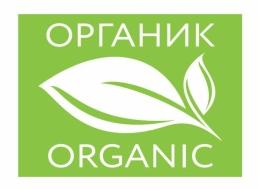
National organic Union gathered full statistics on the number of organic producers in Russia on August 1, 2020. "This year the results that we sum every six months, the most important. Six months have passed since the entry into force of the law on organic production, and also happened coronavirus pandemic, which has left its imprint on the development of the sector and on the measures taken to support the sector, - said Oleg Mironenko, Executive Director of the National organic Union. - Without a doubt, pandemic has affected the emergence of new companies. But only the expectation that the law is finally working, has allowed to increase the number of organic companies in Russia, which is 10 more than in 2019. And that's not counting the fact that until the end of the year still has 5 months and the presence of a company that has conversion (27 companies), that is, those who already produce products according to organic practices but have not yet received the certificates, as the land on which they work, not yet cleared and were not organic. In previous years, the increase was 3-5 companies per year. I think if it wasn't for the epidemic of the coronavirus and the law has earned, in the conversion would include more than 50 companies, and there would be not 10, but 20 new organic companies."
In the registry of organic producers of the Russian Ministry of agriculture, was for half a year already 30 companies. 26 of them are certified "Organic expert" and 6 - Rascacielos (two companies simultaneously certified by both companies). The third company-CA, Voronezh branch of the agricultural centre, today is not a company in the registry, but he has company in the conversion.
Of the 16 foreign certification companies having EU approval for operation in Russia, this year really worked 9, 8 of them have long been certified in Russia, and ninth – a new company from Latvia, who came to the Russian market of certification in 2019.
Of the 94 Russian producers of organic products: 30 have a Russian certificate, 76 – European (with 80% of them work only on the Russian market), and of these 12 companies certified by both the Russian company-certifier, and have a European certificate. "We noticed that many companies this year have extended their European certificates and did not go to the Russian. While the law in Russia is only beginning to act, and has not proved effective until the necessary secondary legislation (e.g. the GOST of wild plants), not all manufacturers expressed a desire to go to the Russian certification, - says Oleg Mironenko. – Has left its mark and pandemic, because within three months, the certification system was virtually paralysed due to the inability of staff travel certification companies in other regions. And had this is the period when certification is most active".
"I hope that wish to obtain a Russian certificate still have time to go through Russian certification under the certification of the season till the snow lay on the fields. Statistics on this issue we will see 1 January ", - said Oleg Mironenko.
Separately in the NOSE collect statistics on the manufacturers related to the production of organic products industries. "I am glad that a large number of manufacturers of biological products and bio-fertilizers have been certified (got a permit for the use of their medicines and fertilizers in organic agriculture), in Russia for 9. All certificates issued by foreign certification companies. However, none of the Russian CA has no accreditation for certification for biologics production, and it is an omission, because the manufacturers of the biologics working on the Russian market, their products are not being exported, so they need to be able to be certified in Russia", - says Oleg Mironenko. The same situation is with herbs, because in Russia there is no standard for wild. The products of wild forest plants, few are sold in Russia, mostly goes abroad.
What make 94 certified companies that produce organic products? Certified this year were 20 companies-processors of organic raw materials - before they were one. With 7 companies of them are engaged in the production of alcoholic beverages. "5 of these 20 companies actively use the foreign processors of organic raw materials, and by law this is their limit in the near future. Need to make sure that they had no barriers to work", - said Oleg Mironenko.
The majority of producers (44) are engaged in crop production. With about 70% of them work in the domestic market are small farms. Large agricultural company working mainly for export.
Only 14 companies engaged in the production of dairy and meat products (almost all companies fall within the category of medium farmers), but by volume, they produce more goods than their crop counterparts, because the turnover of dairy and meat products more. These 14 companies is at least 50 percent of the market turnover of all organic products produced in Russia. Each of these companies has certificate for crop products, as it produces feed for their animals. 3 of them are diversified, that is, have certificates for production of other products (e.g., vegetables, fruits and so on).
13 companies engaged in the production of organic products from wild plants (all foreign certifiers, mainly products are manufactured for export)
In Russia there are 3 certified Russian trader who engaged in organization of export of organic products, it was only European traders.
"We don't yet have businesses that would be engaged in organic aquaculture. But I would like to mention that if they even came, they would not be one to be certified, as neither Russian nor foreign certifiers on the territory of Russia don't do that. It is a pity, because this is a promising direction for Russia from the point of view of filling and export markets", - said Oleg Mironenko. But this year in Russia there were the first company producing organic chocolate, grapes and soft drinks.
"Also important is the question of geography. Despite the fact that, formally, the first place in Moscow and the region, up 22 companies that have organic certificates but their production is often located in the regions. In practice, in the Moscow region works 6-7 manufacturers of certified products. One of the leaders is the Yaroslavl region, here are 8 organic companies, 7 companies in the Tomsk region, 5 in the Krasnodar region, the rest work in other regions", - said Oleg Mironenko.
The sales market for organics in Russia is estimated for 2019, 2020, in connection with the pandemic coronavirus, is not significant. At the end of 2019 sales, including imported products, in Russia was slightly more than 190 million euros. Russian manufacturers produced 20-25 percent of this volume is 35-45 million Euro. The export took products at 20-30 million euros. It's still small numbers, for example, in Ukraine only one export of organic matter amounted to more than 160 million euros, and in Germany to 2018 has sold organic products for more than 10 billion euros. "We are in the beginning, and I hope that we can turn our potential into concrete results. And this land must come to the manufacturer who needs to create the conditions. And it is a matter of state," - says Oleg Mironenko.
"In conclusion, I would like to note that the full statistics on production and consumption of organic products, we possess only the number of producers, and then only through the information gathered by the relevant unions. Other official, proper, reflecting all aspects of the development of this sector there are no statistics, - said Oleg Mironenko. And while the state, despite the entry of the law about organics in force, has not taken any steps to this information to collect and to structure. All numbers (except the number of producers) are a peer review. And it is impossible to build a full-fledged organic market, and especially to make decisions on its further development".
Translated by service "Yandex.Translation"










